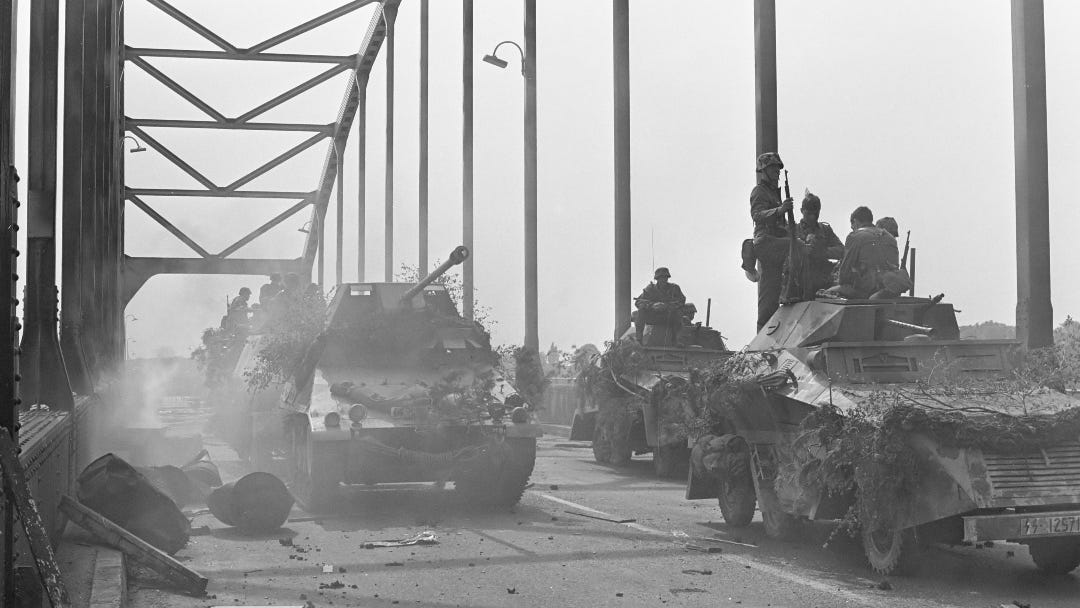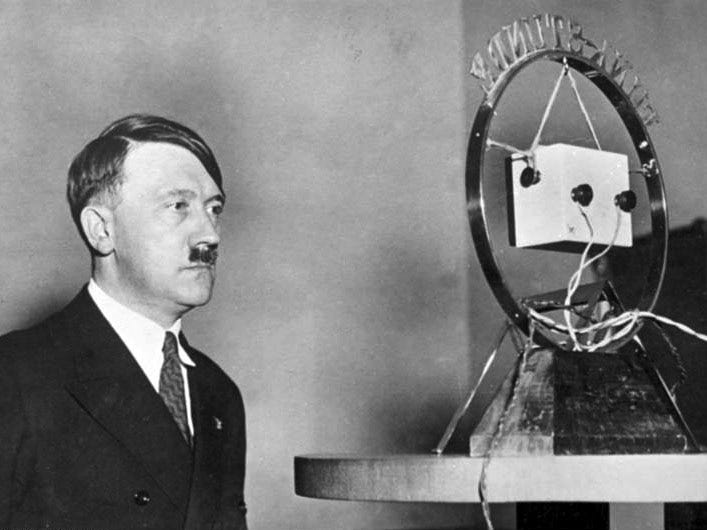Operation Market Garden: The Allied Failure That Prolonged World War II and Shaped the Postwar Era

On September 17, 1944, Allied forces launched Operation Market Garden near Arnhem in the East of the Netherlands. Today, about 60,000 people and some WWII veterans commemorated the 80th anniversary of the operation's start with parachute landings near Arnhem.
I grew up in the Netherlands, where I often heard the stories about this ambitious Allied plan to end World War II by Christmas. The Dutch people will never forget the sacrifices made by Allied forces during this failed battle, and they commemorate the events every September.
British Field Marshal Bernard Montgomery had designed the ambitious plan for Operation Market Garden to outmaneuver the Germans and secure a fast end to the war. The plan's essence was a massive airborne assault to capture key bridges in the Netherlands, allowing Allied ground forces to advance rapidly into Germany. However, problems, including poor planning, faulty intelligence, and underestimation of German resistance, thwarted the operation from the very start.
The bridge at Arnhem
The most critical objective was capturing the bridge at Arnhem, defended by the German 9th and 10th SS Panzer Divisions. The Allied forces had tasked the British 1st Airborne Division with this mission. They encountered fierce German resistance and couldn't hold their positions. After a week of intense fighting, they forced the British to retreat, leaving behind heavy casualties.
Operation Market Garden's failure had far-reaching consequences. It prolonged the war in Europe by several months and allowed the Soviets to gain more ground in the East. Had the operation succeeded, the Iron Curtain might have been further to the East, altering the postwar geopolitical landscape and creating a fascinating "what-if" scenario for historians.
Historians also describe the Battle of Arnhem as a lesson on the limitations of airborne operations and the significance of thorough planning and coordination. The operation's flaws, including the reliance on a single road and the unrealistic timeline, were well-documented in the aftermath.
A Bridge Too Far
I remember reading Cornelius Ryan's A Bridge Too Far and seeing the movie. But I appreciated Antony Beevor's book, "Arnhem: The Battle for the Bridges, 1944," much better. It gives a detailed account of Operation Market Garden. Beevor carefully examined the flawed planning and execution of the operation and concluded that it was a very bad plan right from the start. In his book, he criticizes the leadership of Field Marshal Montgomery, who imposed his strategy against better judgment from his superiors.
Despite its failure, Operation Market Garden is a significant event in World War II history. Whenever I read about it or visit places near Arnhem where the battle was fought, I'm always impressed by the heroism and sacrifice of the Allied troops.
Near Arnhem, you can visit the Airborne Museum Hartenstein. It tells the story of the Battle of Arnhem and Operation Market Garden. The museum is housed in the former headquarters of the British 1st Airborne Division and offers a day-by-day account of the events during the battle.
Neo-fascism on the rise
For those who gave their lives for our freedom, we should never stop commemorating Operation Market Garden. However, another reason makes it essential to reflect on this and other battles of the Second World War. Then, we were united in our fight against the evil of fascism. Today, we are no longer united in our opposition to authoritarian forms of government, and sadly, the appeal to some neo-fascist leadership has resurfaced in some parts of the world, including the United States.
I keep referring to the past in this newsletter since we must remember the lessons of our shared history and remain vigilant against the rise of authoritarianism. The successful Allied coalition that emerged from World War II laid the foundation for 80 years of relative peace and prosperity in Europe. However, this hard-won stability is not a given; we must guard and strengthen our democracy, rule of law, and freedom.
If we don't stand up against neo-fascism, I wouldn't dare to commemorate the brave young Allied soldiers who gave their lives at Arnhem for our freedom eighty years ago.
You may also like:








“If we don't stand up against neo-fascism, I wouldn't dare to commemorate the brave young Allied soldiers who gave their lives at Arnhem for our freedom eighty years ago.”
What we learn from history and must keep fresh in our hearts today.
Thank you for another excellent read.
It's worrisome when government and military leaders fail to heed the advice of superiors and advisors. This was a fascinating read. I want to learn more about this operation.